What lies below
I remember the thrill of getting my first computer, a SZ spectrum that I plugged in to the TV set. Ever since then, trying to translate aspects of reality into programming languages has been a constant goal.
When the time came to go to university I chose a much more traditional subject: Philosophy. Despite any concerns about how that would translate into real employment or how disconnected I would become from the real world, what I most wanted was a sincere dialogue with people who had read, written, and asked the same questions I had in mind. You might call it an existential crisis (‘why is there something instead of nothing?’, ‘can the world be just an image in my mind?’, ‘what gives me an identity?’, etc.) — it was in any case a real search for answering fundamental questions.
I feel I made the right choice, as many of my teachers and fellow students had the same questions. In the end the questions evolved, mutated, the problems got dissolved, contextualised, lost in linguistic distinctions, and a few of them become questions better formulated.
At the same time, I discovered that being a philosopher was a profession just like any other, with its ethics, methods, schools, and biased interests. Teaching was its most likely practical outcome. And more and more I witnessed the fact that philosophy was considered ‘teaching others to think’, ‘to learn to debate’, ‘to think critically’, and so forth. Philosophy was deprived of its raison d’être to become a method, a skeletal copy of itself with no hint of doctrine or content. And I perceived the profession of being a philosopher coincided with a way to gather kudos, university salaries, and book contracts.
After some years in university I came back to coding, to the logic of algorithms, the search for translating objects, relations, and processes into indented symbols — bright letters on a dark background. With code came a diverse community of coders, people sharing the same interests, problems, and even — if I dare to call it so — the same subculture.
My actual understanding of my professional life is a back-and-forth between philosophy and programming. I have identified what I do and what I want to do with different words and now philosophy of software seems the more adequate term (but I answer to philosophy of technology, digital humanities, digital media).
Over the last few months, I often find myself asking the same questions I had in my teenage years: ‘what is the sense of what we are doing?’, ‘what do I really believe?’, even more, ‘what do we really believe?’, ‘what is real and what is just pure appearance’, and then ‘how can we live together?’. These questions are not asked solely at a philosophical level anymore; now they can also be put forth from the perspective of being a professional programmer.
In this respect, programmers seem to be going in the opposite direction from philosophers: they care about methods and processes first — before the real content of what is being dealt with. In the end the conclusion of both communities seems to be the same: ‘let us keep this as an aseptic medium, the machinery of the industrial revolution with its goals, production, human resources, and the only secure values being money and peers’ recognition’, would they say.
What lies below the surface is a desire to know, and change, and share, and live, and love. That is still common to all people and professions. That is still human —and machines and software are issued from the same desire of humans to stay human—, and if we, programmers, philosophers, and others in the software industry, are not trying to come back with answers to those questions, with better questions and actions to these very basic questions, the ennui proper to our present social media, big data, and plethora of applications can very well become a universal risk reaching a point of no return facilitated by our uncontaminated medium and our professionalism.
We will gather at Isle of Ruby — a Ruby conference happening in Exeter University from the 13th to the 15th April — to spur a discussion on this.
